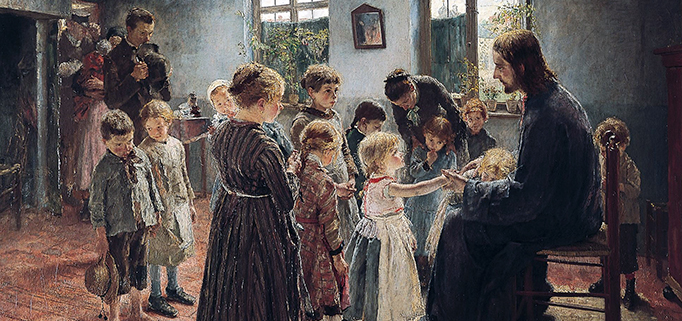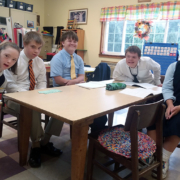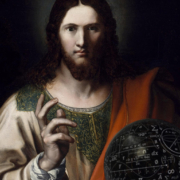Educators Need More than ‘Male and Female He Created Them’
The Vatican has reasserted one of the most basic facts of Christian anthropology: “Male and Female He created them,” which is good as far as it goes. The question for Catholic educators is, ”Now what?” They are being challenged by the relentless march of “gender theory” or “gender ideology”—a deception that claims that sexual orientation and gender are fluid and self-determined—and they desperately need a path forward.
Cardinal Giuseppe Versaldi, prefect of the Congregation for Catholic Education, has described Male and Female He Created Them as a “practical” document, in contrast to the deeper theological reflection expected soon from the Congregation for the Doctrine of the Faith. But the education document does not give practical guidance to educators on the thorny particulars of admissions, personnel and student policies.
And educators urgently need such guidance, because every week brings another activist, lawmaker or attorney accusing Catholic educators of discrimination for refusing to comply with the dictates of the new gender ideology and a parade of related causes that are wholly contrary to the traditional Catholic understanding of human nature. This is a grave threat to faithful Catholic education.
Consider cases similar to the one in Kansas City, where the Archdiocese turned away a kindergarten student because of same-sex parents. What are the principles that guide Catholic school and college admissions policies? Can Catholic educators and administrators articulate them? Is a student always admitted out of concern for the child, regardless of the parents’ actions and ideology, or should educators consider the influence that adults can have on other children and protect against scandal? Does a school or college accept a child struggling with gender confusion? If so, what message does this send to other students and what pronouns are used, and when? Answer these questions the wrong way, and a school could compromise its Catholic mission or be the target of a lawsuit.
With regard to personnel policies, how does a Catholic school or college respond when a teacher or professor announces a same-sex marriage, declares a new gender identity, or simply insists on embracing aspects of gender ideology? At the Cardinal Newman Society, we have heard from well-intentioned academic leaders who refuse to spell out their policies, instead leaving each situation to their own discretion. That is a recipe for disaster.
In all of these examples, clear standards consistent with traditional Catholic moral and theological norms are key and will help ensure fidelity, compassion and justice.
But there’s another sense in which the truths taught in Male and Female He Made Them need to be developed further to address the practical needs of educators. As noted above, the document’s teaching addresses one of the most basic aspects of human anthropology, the fact that we are created male and female.
Following from that truth and over the centuries, Catholics had developed tried-and-true lessons and habits that helped young people preserve chastity, respect marriage and celebrate children. But in many ways, our culture has forced us to start again from scratch, re-learning simple habits and patterns of male-female relationships.
That means that Catholic educators need to recover and teach to young people these habits and patterns.
For example, not a single faithful Catholic from any generation prior to the 1960s would have doubted that coed dormitories and closed-door visits by the opposite sex in student bedrooms would result in premarital sex, mortal sin, STDs and even sexual assault. Yet most Catholic colleges, with notable exceptions at a few Newman Guide colleges, allow a student to have their boyfriend or girlfriend in their bedroom with the door closed, often after engaging in binge drinking that lowers inhibitions. How many souls have been damaged by these visitation policies that clearly invite near occasions of sin?
Yet when I and my Newman Society colleagues raise the concern of Catholic college dorm policies and near occasions of sin, we are looked upon as relics of a bygone age. I am entirely certain that near occasions of sin are still quite real. What has been lost is our sensitivity to man’s fallen nature and the grave importance of preserving chastity for the good of families and for the good of our souls.
Yes, God created us male and female. It is very good that the Vatican has reasserted this basic truth.
But like mathematicians reasserting fundamental arithmetic, we ought to also understand much more about the natural and moral implications of our sexuality and human nature—and Catholic educators especially need to teach these to the young.
Our problem, of course, is that we Catholics got comfortable compromising on little things when the culture was still reliably Christian. In today’s militantly secular culture, we had better get serious about consistently teaching the truth and remembering fundamentals like 2+2=4, that God created us male and female, and that concupiscence is real. And we had better be able to articulate the principles behind the policies we develop, to uphold Catholic identity before it is too late.
This article was first published at The National Catholic Register.




 St. Agnes School, St. Paul, MN
St. Agnes School, St. Paul, MN

